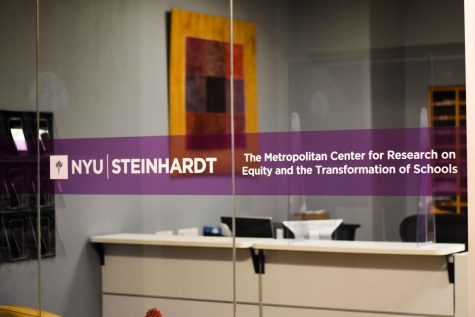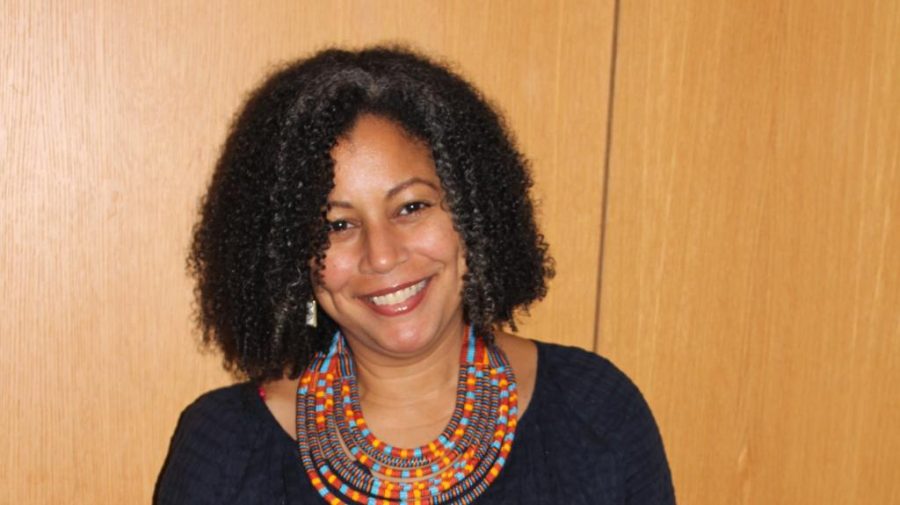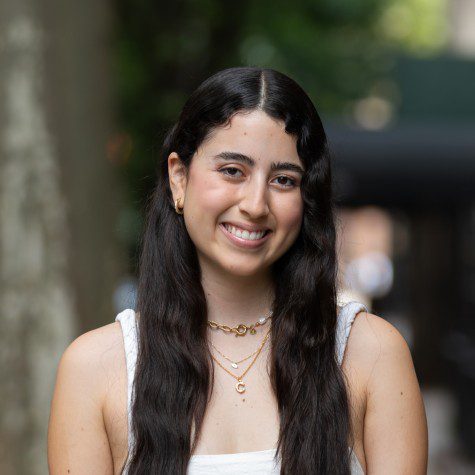Fabienne Doucet becomes first Black woman to lead a Steinhardt research center
Fabienne Doucet focuses on mentorship and community as the new director of NYU’s Metropolitan Center for Research on Equity and the Transformation of Schools.
Fabienne Doucet is the first Black woman to lead a research center at NYU Steinhardt. (Image courtesy of NYU)
February 10, 2022
Fabienne Doucet was recently appointed the executive director of an NYU research center focusing on providing resources to end education inequality. Doucet is making NYU history, becoming the first Black woman to head a research center at NYU Steinhardt.
The Metropolitan Center for Research on Equity and the Transformation of Schools at the Steinhardt School of Culture, Education and Human Development has gained international success since its founding in 1978, and expanded its programs outside of the United States in 2013. It uses school outreach programs and research centers to combat the injustices faced by marginalized youth in the education system.
Doucet was born in Spain, grew up in Haiti and migrated to the United States at the age of 10. She said her multicultural upbringing has greatly influenced her approach to research.
“I think my interest in schools came from my interest in families of color, and how they were being positioned,” Doucet said. “How they were being misunderstood and underestimated. Their dedication to their children and their philosophies of education were being undervalued.”
She recalled participating in a study focused on immigrant youth in the public school system during her postdoctoral fellowship at Harvard University. The research allowed her to explore her identity as a Haitian immigrant and cemented her interest in the experiences of families of color navigating the education system.
“Even though it was a focus on youth, another strong component of it for me was their parents,” Doucet said. “I started to gather something that is still a very strong pillar of my research interests in family-school relationships, which was that readiness for school was being framed very much as children and families being ready for school as opposed to schools being ready for children and families.”
Reflecting upon her own experiences as a student in the education system, Doucet emphasized the pivotal role mentorship played in her own life. During her time as an undergraduate student, Doucet struggled with choosing her career path, before Dorothy Gish, the then-dean of students at Messiah University and a mentor to Doucet, encouraged her to pursue child development and family studies. Gish’s influence on Doucet’s life has led her to focus on the power of mentorship in her new role at Steinhardt.
“First and foremost, I’m a mentor,” Doucet said. “That’s a huge part of my professional identity, that I support the careers of other people. In particular, I support the careers of people of color, women, people on the margins, people whose identities are underrepresented in the academy. That’s my passion, that’s my love.”

Noor Jones-Bey, the director of the EXCEL program at Steinhardt’s metro center, which provides college preparation and literacy programs for students in the South Bronx, is a current mentee of Doucet’s. She said Doucet’s appointment fits with the legacy of the women of color who have helped shape the metro center in the past.
“She takes everyone in as a mentee, just in her way of being,” Jones-Bey said. “She’s always highlighting the skills and the strengths of people around her. And I think what that does is it centers gratitude. And so you lead together, we feel very much empowered in our roles.”
María G. Hernández is the director of the Innovations in Equity and Systemic Change program at the metro center, which focuses on giving educational institutions the resources they need to meet the needs of all students. She said that Doucet’s inclusive leadership style fosters a powerful community at the metro center.
“I think she has an empathetic ear that many don’t actually have,” Hernandez said. “You need to have an empathetic ear to be able to create community and trust. I think the magic that she brings is really around creating spaces of community, creating spaces where individuals are a valuable piece of the metro center.”
Currently, the metro center’s programs fall under two primary principles: school transformation and research. School transformation focuses on community outreach, engaging with schools across the United States to promote equity and access in the education system. The research institution works to find the underlying causes that lead to inequalities in the education system.
Doucet hopes to expand the metro center’s research to include analysis of the inequities faced by young people before schooling begins and after graduation. She also hopes to grow the metro center’s body of research affiliates by bringing in junior scholars. The scholars would be mentored by researchers to use research as a tool for action and liberation.
“Part of our mission and vision has to do with equity, and ensuring that schools are spaces where our children of color and children on the margins can actually thrive and be centered, and be free and have futures, and live joyful lives,” Doucet said.
Contact Alina Hollister at [email protected].

























































































































































